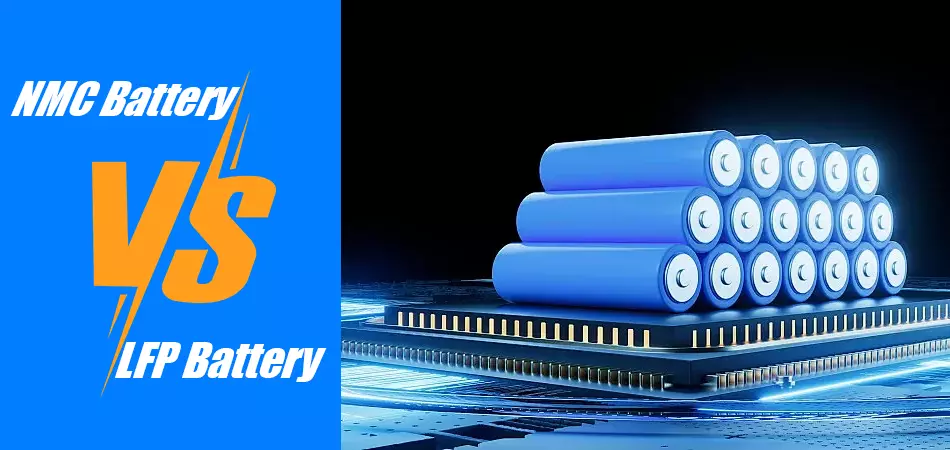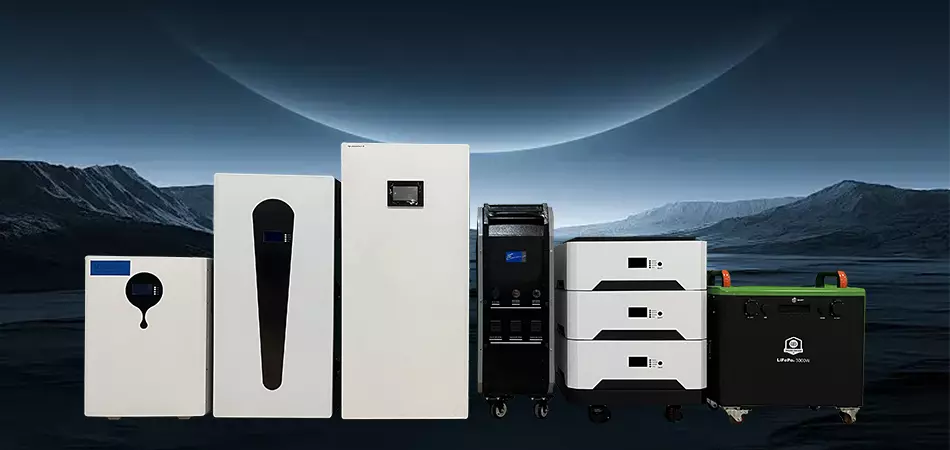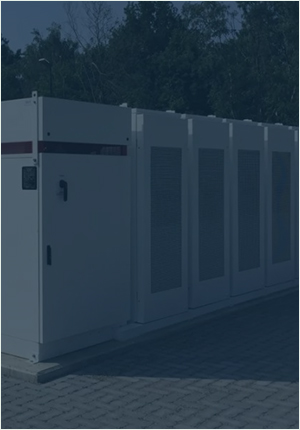2024-08-20 Author : CXJPowers
在考虑购买电池时,锂电池是大多数人的首选。在锂电池中,三元锂离子电池(NMC)和磷酸铁锂电池(LiFePo4)是主要的选择类型。那么,这两种锂电池之间有什么区别呢?
这两种电池在应用和性能上存在显著差异。下文将从安全性、使用寿命、环境可持续性等几个方面详细分析它们的优缺点,帮助您尽可能地了解这两种电池类型,并选择更符合您需求的电池。

LiFePO4电池是一种磷酸铁锂电池,其正极材料为磷酸盐。它使用铁和磷酸盐替代镍和钴,使得电池的制造成本低于镍基电池。此类电池的能量密度相对较低,更适合标准续航里程或短距离电动汽车。磷酸铁锂电池采用低电阻材料,更安全、更稳定,使用寿命更长,因此也可用于太阳能储能和离网系统。
基于以上认识,让我们分析比较两者在安全性、使用寿命、环境可持续性等方面的差异,以及为什么LiFePO4是与太阳能光伏一起用于家庭电池存储的更好选择。
The full name of NMC battery is lithium manganese cobalt oxide battery, which uses a combination of nickel, manganese and cobalt as the cathode material. Because of its high energy density and high power output, it is more suitable for applications such as portable electronic devices and electric vehicles. However, because the transition metal materials used in the positive electrode of NMC batteries, especially nickel, have high activity, people also have certain concerns about the safety of this battery.
1. High safety
LiFePO4 batteries have built-in overcharge and over-discharge protection circuits, which makes LiFePO4 batteries have higher thermal stability than other batteries, can withstand high voltage use for a long time, are less prone to thermal runaway, overheating and other safety issues, and are less likely to cause thermal runaway, overheating and other safety issues. Short circuits can occur and cause electrical fires and are best suited for use in domestic and commercial locations where safety is critical.
2.Long service life
One of the main advantages of LiFePO4 batteries is their durability and long service life. LiFePO4 batteries typically have a cycle life of 2,000 times. The LiFePO4 batteries provided by CXJPowers have a cycle life of more than 6,000 times. When choosing solar energy storage for your home, it's important to choose batteries with a long lifespan.
*Cycle life refers to the number of charge and discharge cycles that a battery undergoes under specified charge and discharge conditions when its capacity or performance drops to a specified percentage of the initial value after experiencing multiple complete charge and discharge cycles.
3. Environmentally sustainable
LiFePO4 batteries do not use the same toxic chemicals and harmful heavy metals (such as cobalt or nickel) found in other batteries. Therefore, LiFePO4 batteries are more Eco-friendly and easier to recycle.
4. Low maintenance
LiFePO4 batteries are designed and produced to reduce battery degradation rates. Once a LiFePO4 battery is installed, you don't need to worry about proactive maintenance to extend its life.
5. Can work normally in the environment of -20℃-60℃
LiFePO4 batteries are rugged and can operate effectively and efficiently at high and low temperatures from approximately -4.4°C to 70°C. This makes them ideal for home/commercial use in most geographical locations and climates.
6. Compatible with solar charging
This type of battery is highly compatible with solar storage systems and is constructed and designed to easily plug-in with solar panels.
In some cases, the initial cost of purchasing and installing an LiFePO4 battery may be higher than other batteries, but this is usually offset by a longer service life and lower maintenance costs.
虽然 LiFePO4 电池更适合用于太阳能存储系统,但在某些情况下 NMC 是更受欢迎的选择。
NMC电池具有更高的能量密度,这意味着它们可以在更小的空间内存储更多能量。这使得它们非常适合用于优先考虑空间和重量的小型应用,例如便携式电子设备、工具和电动汽车。
业界经常将NMC和LiFePO4放在一起讨论和比较。NMC的安全性和热失控问题令人担忧。那么,就家用或商用电池储能而言,LiFePO4是否永远是赢家?
业内专家之间的争论仍在继续,而且可能还会持续一段时间。但就太阳能电池储能而言,磷酸铁锂(LiFePO4)被广泛认为是更好的选择,这也是许多顶级电池制造商现在选择这种化学材料作为其储能产品的原因。
选择哪种类型的电池取决于您的具体需求。如果您需要一款安全可靠且使用寿命长的电池,磷酸铁锂电池可能是您的最佳选择。但是,如果您需要一款用于小型应用且能量密度更高的电池,三元镍钴锰电池 (NMC) 电池可能更适合您。无论您选择哪种类型的电池,都应关注其安全性、可靠性和性能,并咨询专业人士以确保做出最佳选择。CXJPowers 提供磷酸铁锂电池储能系统。如有任何需求,欢迎联系我们!

-------------------
欢迎定制家庭储能系统。 立即联系我们!
CXJPowers 提供一站式定制便携式电源、磷酸铁锂电池/三元锂电池组、应急储能解决方案,并支持 OEM 和 ODM 服务。



